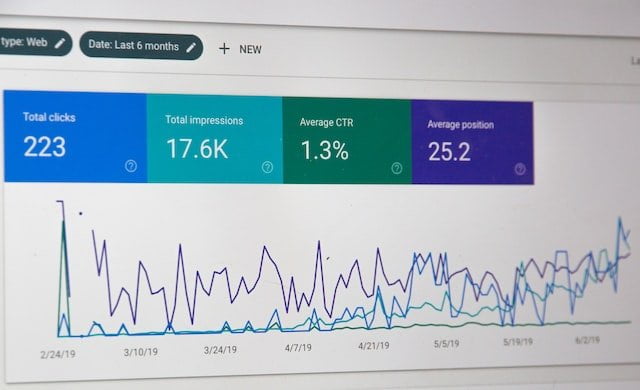Understanding Local SEO
Importance of Local SEO
Local SEO is the practice of optimising your online presence to attract more customers from relevant local searches. It is essential for businesses, especially those with a physical presence, as it helps them reach potential customers in their vicinity. With the rise of mobile devices and voice searches, local SEO has become even more critical for businesses to stay competitive.
Local search ranking factors
Several factors influence local search rankings, such as proximity, relevance, and prominence. Proximity refers to how close the searcher is to the business, while relevance indicates how well the business matches the searcher’s query. Prominence involves the overall popularity and reputation of the business.

Essential Local SEO Strategies
Optimising Google My Business
Google My Business (GMB) is a free tool that enables businesses to manage their online presence across Google, including Search and Maps. To optimise your GMB listing:
- Claim and verify your business listing.
- Provide accurate and up-to-date information.
- Add high-quality photos and videos.
- Select the right business category.
- Include your business hours.
Acquiring customer reviews
Genuine customer reviews on your GMB listing can boost your local search rankings and enhance your online reputation. Encourage customers to leave reviews and respond to them professionally, whether positive or negative.
Building local citations
Local citations are online mentions of your business’s name, address, and phone number (NAP). These citations can appear on business directories, social media platforms, and review websites.
Consistent NAP information
Ensure your NAP information is consistent across all platforms, as inconsistencies can harm your local search rankings. Regularly audit your citations and correct any discrepancies.
Creating localised content
Crafting content that caters to your local audience can help you rank higher in local searches.
Targeting local keywords
Research and target local keywords related to your products or services. Incorporate these keywords into your website content, meta tags, and image alt text.
Leveraging Local Link Building
Engaging with local community
Participate in local events, sponsorships, and community projects to build relationships and earn backlinks from local websites.
Partnering with local businesses
Collaborate with complementary local businesses to create joint content or promotional campaigns, earning valuable backlinks and increasing local visibility.
Tracking Local SEO Performance
Using local SEO tools
Leverage tools such as Google Analytics, Google Search Console, and specialised local SEO tools to track your local SEO performance and identify areas for improvement.
Analysing performance metrics
Monitor key local SEO metrics, such as organic traffic, click-through rate, local search rankings, and conversion rates, to evaluate the effectiveness of your strategies and make data-driven decisions.
Conclusion
Focusing on local SEO is vital for businesses looking to reach potential customers in their area. By understanding the importance of local SEO, implementing essential strategies like optimising your Google My Business listing, building local citations, creating localised content, and leveraging local link building, you can boost your online visibility and attract more customers. Tracking your local SEO performance with the right tools and metrics will help you fine-tune your strategies and stay ahead of the competition.
Join MBM and increase your productivity.
We are local SEO experts with years of experience helping businesses like yours achieve their SEO goals. Whether you need help with optimising for voice search, improving user experience, or building high-quality backlinks, we can help.
Our team of SEO specialists has a deep understanding of the latest SEO trends and strategies, and we can work with you to create a customised SEO plan that fits your business needs and budget.
FAQ’s
Local SEO targets users searching for products or services within a specific geographical area, while traditional SEO focuses on improving a website’s overall visibility and ranking on search engines without geographical constraints.
To optimise your website for voice search, incorporate conversational long-tail keywords, ensure your website is mobile-friendly, and provide accurate and up-to-date information in your Google My Business listing.
You should update your Google My Business listing whenever there are changes in your business information, such as an address, phone number, or hours of operation. Regularly adding new photos and posts and responding to customer reviews can also help keep your listing fresh and relevant.
Local SEO is an ongoing process, and results may vary depending on the competition and the effectiveness of your strategies. It’s essential to consistently implement and optimise your local SEO efforts, monitor your performance, and adjust your strategies as needed. Generally, it can take anywhere from a few weeks to several months to see significant improvements in your local search rankings.
Use keyword research tools such as Google’s Keyword Planner, Moz’s Keyword Explorer, or Ahrefs’ Keywords Explorer to identify relevant local keywords. Analyse your competitors’ websites and pay attention to local search trends and user queries to find the best local keywords for your business.
Online reviews play a significant role in local SEO. They can impact your search rankings, online reputation, and customer trust. Encouraging customers to leave genuine reviews and responding to them professionally can help improve your local search performance.
Paid advertising, such as Google Ads and social media ads, can complement your local SEO efforts by increasing your online visibility and driving targeted local traffic to your website. However, they should not replace your organic local SEO strategies.
Select the most relevant categories that best describe your products or services. Google provides a list of predefined categories, so choose the ones that align closely with your business offerings.
Use tools like SEMrush, Moz’s Local Market Analytics, or Ahrefs to analyse your competitors’ local SEO strategies, such as their backlink profiles, keyword usage, and online reputation. This information can help you identify areas where you can improve your own local SEO efforts.




